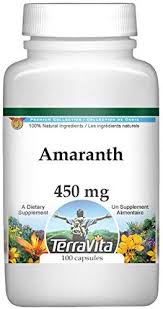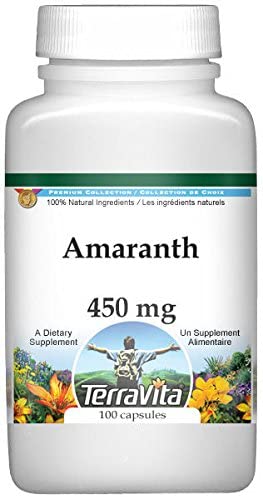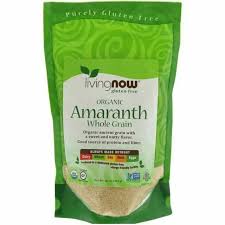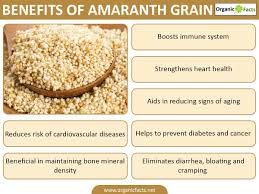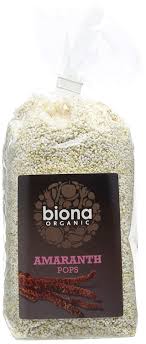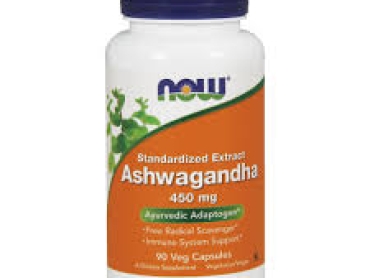What Are Amaranth Pills?
Firstly Amaranth looks like spinach. Secondly It is mainly found in the foothills of the Himalayas and the coasts of South India. Thirdly it comes in various colours from gold, red, green to purple. Amaranth Pills are made from this wonderful plant.
Why Amaranth Pills?
Generally the humble Amaranth leaves are witnessing a resurgence in popularity. Similarly this is after research has found them to be packed with essential vitamins and nutrients.
Health Benefits of Amaranth Pills
It is a storehouse of nutrients
-It is east to digest
-Additionally it reduces bad cholesterol
-Amaranth Pills are rich in Potassium
-Its similarly rich in Calcium
-This product is Gluten-free
Its rich in Vitamin B Vitamins
Additionally its rich in Vitamin K
Amaranth Pills boost immunity
Its low in Carolies
Amaranth is high in fiber
Its leaves have Lysine. Lysine is an essential amino acid that is needed for energy production and absorption of calcium.
Its good for Anemics
Used mostly as part of the winter dishes of saag, it is the less favourite relative of spinach. In the same vein Amaranth leaves are superior to most greens because they are a powerhouse of nutrients. Let us look at some health benefits of eating Amaranth Pills.
-
Storehouse of Nutrients
Amaranth leaves are a storehouse of essential phytonutrients and antioxidants. Most importantly they help to reduce inflammation in the body. Moreover they provide an extra boost of nutrition to one’s health. Amaranth is a great tool you can use to fight inflammation. And more importantly, it treats inflammatory conditions like arthritis and gout. This is especially true in the case of osteoarthritis.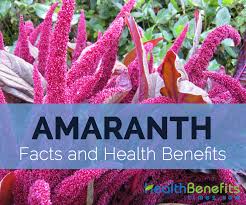
-
Amaranth Pills Are Low in Calories
100gms of Amaranth leaves carry only unbelievably light baggage of just 23 calories. Traces of fat and absolutely no cholesterol make them a healthy go-to food option, especially those who are watching their weight or who want to reduce.
-
High in Fiber
Amaranth leaves are rich in soluble and insoluble fibre that has many benefits. Eating fibre helps us to reduce our weight and wards off heart disease as it lowers the cholesterol in the blood. Amaranth is high in protein and fibre, both of which may help reduce appetite and increase weight loss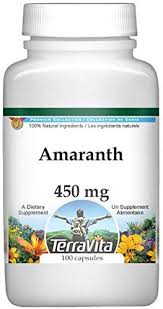
-
Amaranth Pills Are Good for Anemics
Iron is needed for producing red blood cells and is also needed for cellular metabolism. Reap maximum benefits of this powerful punch of iron that amaranth leaves provide by adding some source of vitamin C as it facilitates maximum absorption of iron in the blood. So, you could add a dash of lemon or have the amaranth leaves dish with a glass of orange juice.
-
Boosts Immunity
Here is another reason why you should make amaranth leaves a regular part of your diet. These leafy greens are rich in vitamin C. having 100gms of the leaves will meet 70% of your daily requirement for vitamin C.
Amaranth leaves are rich in vitamin A and a cup can meet 97% of your daily need for this antioxidative vitamin. They are also full of flavonoid polyphenolic antioxidants like beta-carotene, zeaxanthin, and lutein which provide a protective layer against oxidative stress caused by free radicals. Vitamin A is also needed for healthy skin and proper vision.
-
Contains Vitamin K
Among all the green leafy vegetables, amaranth leaves have the highest quantity of vitamin K.
Amaranth leaves are replete with vitamins of the B group. Folates, riboflavin, niacin, thiamin, vitamin B6 and others are all found in these leafy greens. Amaranth is gluten-free, which is great news for anyone who wants to have a healthy diet but is gluten-intolerant. The seed is a great source of protein, which helps build muscle and boosts immunity and hair health. And the fiber amaranth contains works great for treating diabetes, heart disease, obesity, and even cancer.
-
Lots Of Potassium
The leaves of this plant are full of potassium. The element is needed for good cardiac health. Potassium is necessary for creating a balanced cellular fluid environment. In addition It also controls the heart rate in the human body.
-
Amaranth is Gluten-free
The seeds of amaranth plant are used as a grain and can be ground to be made into flour. In the same vein this is a protein-rich flour that is entirely gluten-free, so it is incredibly beneficial for those who have gluten intolerance.



